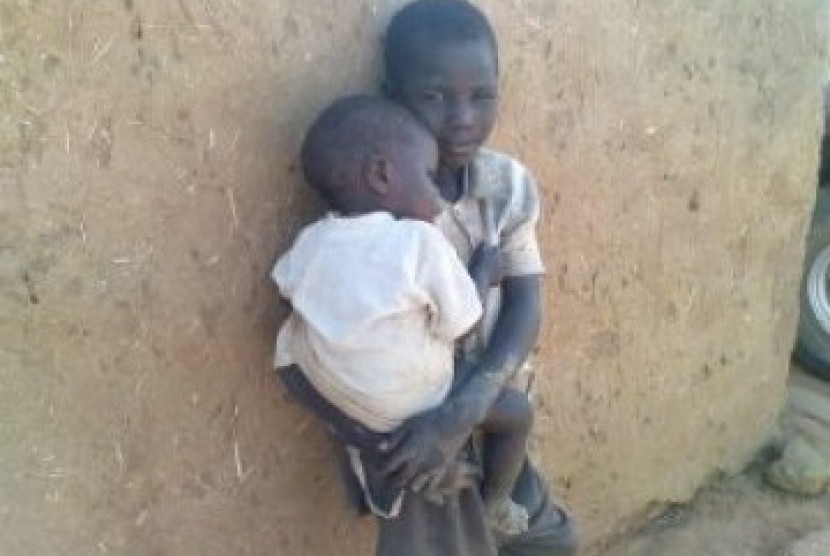REPUBLIKA.CO.ID, NAKURU -- Lucy Kemunto, a Kenyan mother of five children, knows no other place to eke out a living from other than a quarry.
From 8 am to 4 pm, she has devoted all her efforts towards breaking lumps of stones at the Soweto quarry in the rural village of Lare, Nakuru County.
Even if it rains or the sun rays turn hot, she cannot abandon the strenuous job since her children must have food to eat, clothes to wear and writing materials for their studies.
But to fill one wheelbarrow of gravel is not an easy task for her. Her way of doing it faster and thus earn more money is finding a helping hand in her daughter, who is a few weeks shy from 13 years.
"This is not something I would wish my daughter to do, but I do not have any other choice. It is hard work and sometimes you feel so much pain on the chest," Kemunto told Xinhua Friday ahead of the International Children's Day.
Kemunto, who dropped out of school due to poverty, said she cannot get a better job since she lacks skills to secure a well- paid job. As her daughter heaves under a heavy hammer to smash a lump of stone, Kemunto informs her that she wants her to work hard in school and have a good life.
"You know you have to do this work because we need to save for your high school fees. Don't worry, you will find something better to do in future. For now, we have to do our best," Kemunto tells her daughter who smiles back under drips of sweat.
Her four other children accompany her to the quarry but she only allows them to either carry or push over the smaller pieces of stone.
"When they grow older and I find myself still here, they will join me," says Kemunto, adding that she is always concerned of the dust they inhale, which affects their breathing, but finds herself in a hopeless situation as the quarry is her only source of income.
Across Kenya, riddled with high levels of poverty especially in the rural areas, children under the age of sixteen form part of the hard labor.
With parents who hardly have enough to meet their basic needs, the children find their way to farms, domestic work, quarries and even industries.
As such, Kemunto's daughter is among the thousands of children in the country who have been forced to take rather harmful and dangerous jobs to either feed or raise school fees for themselves.
Kenya's Constitution upholds provision of quality life for children. However, the high levels of poverty in more than 46 percent of the households stands in the way to giving the children safe shelter, comfortable clothing, quality education and proper medical care.
Even though Kemunto wishes she would let her daughter focus on her studies, the trouble of feeding the rest of her siblings leaves the mother with a disturbing choice: recruiting the school- going daughter into her workforce.
"Poverty is an enemy to observing children's rights in Kenya," says Bernard Obutu, a children's lawyer.
For impoverished parents such as Kemunto, he says, observing their rights becomes a dilemma since they also view them as source of manpower to raise an income.
"Some would rather send them away to be employed in farms as long as they make money. Others give their daughters to work in homes and all the money is sent to them.
This is exploiting their children economically and is illegal," notes the lawyer.
Obutu says under the law, it is illegal to expose children to environments that expose them to harm either physically, mentally, psychologically or sexually.
In Kenya, the Employment Act (2007) prohibits employment of a child below 13 years. But those between 13 and 16 can be employed to do light jobs harmless to child's health or development and do not prejudice his or her attendance to school, participation in vocational orientation and training programs.
Chryspin Afifu, a gender and development expert, says parents need to be well informed on their obligations in protecting their children's rights.
"There have been cases in which women sell their children, and they think it is their right to do since the child belongs to them. They do not understand that this is a crime and they can be prosecuted," says Afifu.
Traditions held by particular communities, for instance, female genital mutilation, he says, have also interfered with the process of providing safe living conditions for children in the country.
Kenya has legislations outlawing circumcision of girls. However, it is a practice commonly held among communities in western, central, north eastern, Nyanza and Rift Valley regions.


